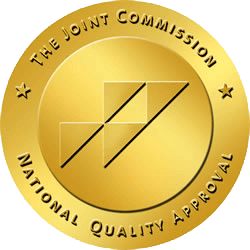No parent wants to think that their child may be addicted to opioids. The problem of opioid abuse affects every community, no matter a person’s race or background. You can be doing everything right when it comes to parenting yet still find yourself faced with a situation where your teen has a problem with drugs. Destinations for Teens provides a safe environment for teens struggling with many types of opioid addiction.
What Are Opioids?
Opioids belong to a class of drugs that blocks pain signals and causes intense euphoria. A few examples include fentanyl, morphine, codeine, hydrocodone, and oxycodone. People take opioids in various ways. They may crush the substance in pill form and add water and heat before injecting or smoking it. Some people combine it with other substances like benzodiazepines, cocaine, or alcohol, increasing the risk of an overdose and potential death. People can start with a dependency on prescription opioids, then progress to using heroin when their supply gets cut off.
What Are the Signs of Opioid Use?
You may notice your teenager seeming like they are out of it or in a constant fog. You may have trouble getting them to focus on you or care about anything other than getting more drugs. Other signs of opioid use include:
- Sliding in and out of consciousness
- Constantly scratching at the skin
- Signs of needle marks
- Small black pupils
- Nausea
- Vomiting
It’s up to you to get help for your child once you recognize signs of opioid addiction. Our staff at Destinations for Teens understands the impacts of drugs on a young person’s life. We designed our treatment programs to address young people’s unique needs and offer a better way forward that doesn’t involve using drugs.
How Does Opioid Addiction develop into Heroin Addiction?
Teens may start off sneaking prescriptions like Vicodin out of their parent’s medicine cabinets. They may also gain access to prescription opioids by purchasing them from someone else. When they are unable to obtain more, they may try heroin so they can experience similar effects. Many young people get introduced to heroin use via their peers. It may be offered to them at a party in a crowd or on a one-on-one basis by someone they usually trust. All opioids similarly affect the brain. Heroin binds to opioid receptors in your brain and increases dopamine production, a neurotransmitter capable of heightening feelings of pleasure. Your brain gets hooked on the excess dopamine and does everything possible to encourage you to provide it with more. That can lead to teens participating in increasingly desperate and dangerous behaviors to obtain more heroin. One of the biggest dangers of heroin addiction is the potential to overdose, especially if your teen mixes in other hazardous substances.
How Can Teens Overcome Opioid Addiction?
Behavioral therapy and other forms of counseling can be beneficial in helping teens express what’s going on inside. Working through internal issues goes a long way toward helping young people overcome their addictive behaviors and find healthier ways of dealing with their problems. Destinations for Teens offers programs like:
- Residential treatment program
- Partial hospitalization program
- Intensive outpatient program
- Therapeutic services
Destinations for Teens provides help for teens and their families. Contact us today at 877.466.0620 if your child needs help overcoming opioid addiction.
References: Maremmani A AGI, Maiello M, Carbone MG, et al. Towards a psychopathology specific to substance use disorder: should emotional responses to life events be included? Compr Psychiat. 2018;80:132–139.


